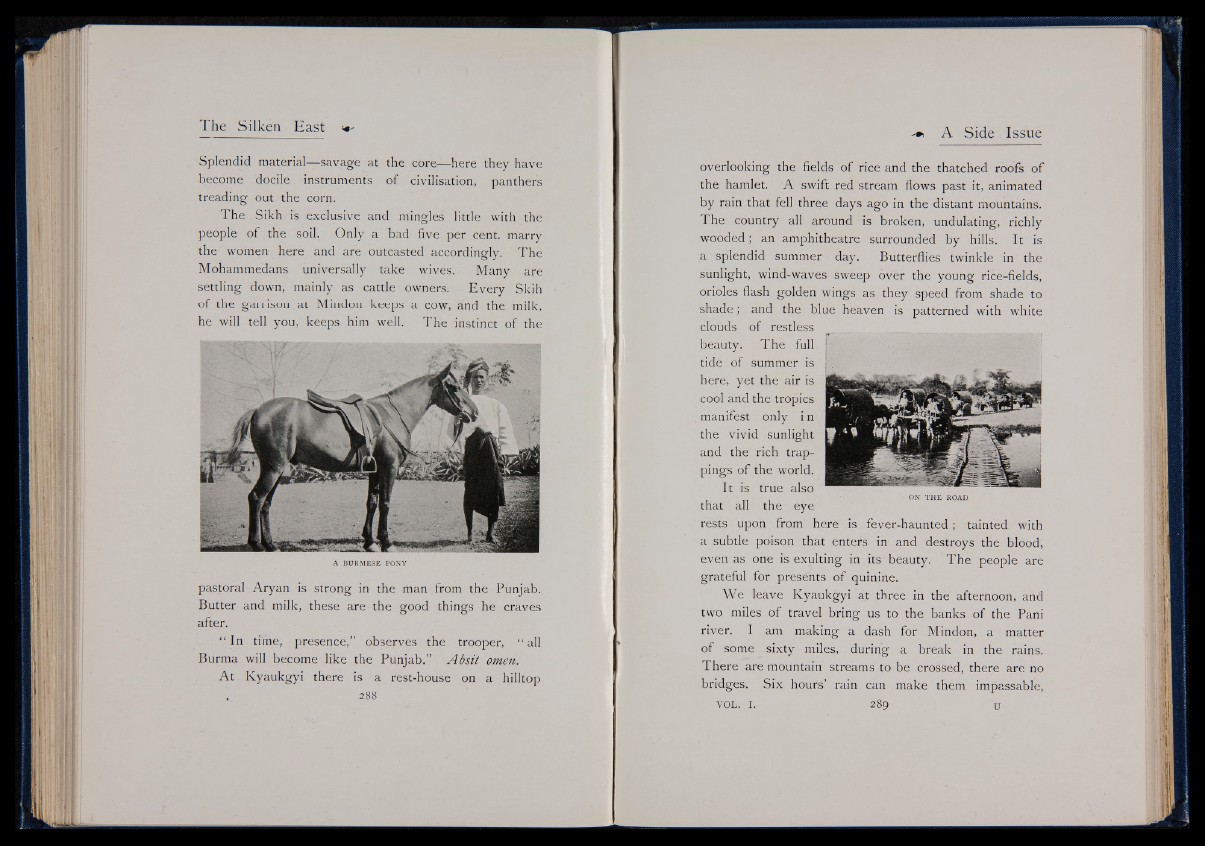
Splendid material— savage at the core— here they have
become docile instruments of civilisation, panthers
treading- out the corn.
The Sikh is exclusive and mingles little with the
people of the soil. Only a bad five per cent, marry
the women here and are outcasted accordingly. The
Mohammedans universally take wives. Many are
settling down, mainly as cattle owners. Every Skih
of the garrison at Mindon keeps a cow, and the milk,
he will tell you, keeps him well. The instinct of the
A BURMESE PONY
pastoral Aryan is strong in the man from the Punjab.
Butter and milk, these are the good things he craves
after.
“ In time, presence,” observes the trooper, “ all
Burma will become like the Punjab.” Absit omen.
At Kyaukgyi there is a rest-house on a hilltop
288
overlooking the fields of rice and the thatched roofs of
the hamlet. A swift red stream flows past it, animated
by rain that fell three days ago in the distant mountains.
The country all around is broken, undulating, richly
wooded; an amphitheatre surrounded by hills. It is
a splendid summer day. Butterflies twinkle in the
sunlight, wind-waves sweep over the young rice-fields,
orioles flash golden wings as they speed from shade to
shade; and the blue heaven is patterned with white
clouds of restless
beauty. The full [
tide of summer is
here, yet the air is
cool and the tropics
manifest only i n
the vivid sunlight
and the rich trappings
o f the world.
It is true also
■ fc>N TH E ROAD
that all the eye
rests upon from here is fever-haunted; tainted with
a subtle poison that enters in and destroys the blood,
even as one is exulting in its beauty. The people are
grateful for presents of quinine.
We leave Kyaukgyi at three in the afternoon, and
two miles of travel bring us to the banks of the Pani
river. I am making a dash for Mindon, a matter
of some sixty miles, during a break in the rains.
There are mountain streams to be crossed, there are no
bridges. Six hours’ rain can make them impassable,
v o l . 1. 289 u